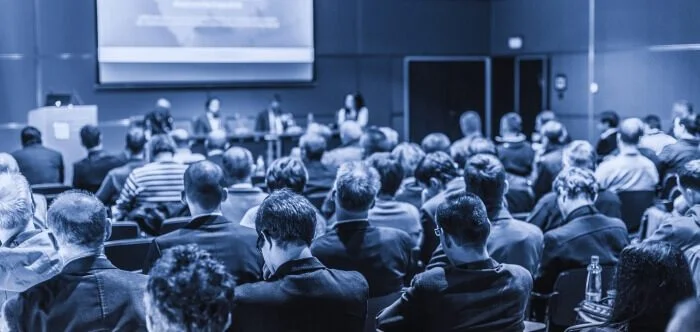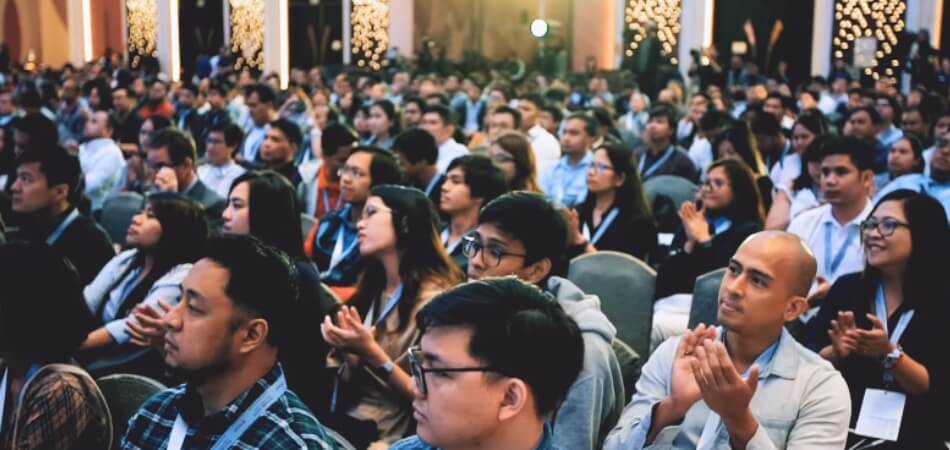Managing the world of academic conferences can be challenging, especially when you’re trying to find the ones that truly stand out. You might be asking yourself, “How do you know if a conference is prestigious?”
The process lies in a systematic approach: researching the conference’s reputation, examining the credentials of keynote speakers, investigating publication opportunities, assessing the selection process, and taking into account attendee feedback.
Attending or presenting at a conference can be significantly influenced by these elements. To get more insights and make informed choices, keep reading our blog for a detailed guide on analyzing the prestige of academic conferences.
Historical Significance of Conference
Conferences hold a rich historical significance in the exchange of knowledge and ideas. They have served as pivotal gatherings for scholars, experts, and enthusiasts, encouraging collaboration and innovation. These events date back centuries, shaping the course of various fields through meaningful discussions and shared discoveries.

In the past, conferences were essential for spreading information, providing a platform for experts to present research and groundbreaking findings. These gatherings laid the foundation for academic and professional growth, fostering debates that contributed to advancements in many disciplines.
Over time, conferences evolved to cover diverse topics, from art to technology, playing key roles in shaping historical moments. International conferences, in particular, have allowed experts from different countries to collaborate on solutions for global challenges. Events like conferences in Canada, USA, and many other countries continue this tradition, bringing together professionals from around the world to exchange insights and drive progress.
Popular Types of Conferences You Can Visit
Exploring the world of conferences can be an enriching experience, with various types suited to diverse interests. Here are some popular conference types you can attend, each offering a unique learning experience:
Academic Conferences
During academic conferences, scholars and researchers exchange insights, present papers, and engage in intellectual discourse. They are crucial for academic networking and staying updated on the latest research trends. Topics range from literature and history to science and technology.
Business Conferences
Professionals interested in expanding their networks, learning more about their industries, and discovering new opportunities should consider attending business conferences. These events often feature keynote speakers and workshops on entrepreneurship, leadership, and market trends. Attending a top tier conference in business can improve your professional standing and open doors to new possibilities.
Technology Conferences
A tech conference is a great place for technology enthusiasts to learn about the latest innovations. These gatherings showcase the latest gadgets, software, and discussions on the future of technology. You can explore topics like artificial intelligence, cybersecurity, and the Internet of Things (IoT).
Medical Conferences
Healthcare professionals attend medical conferences to exchange medical knowledge, discuss breakthroughs, and advance patient care. These events cover a wide range of medical specialties and research, including cardiology, oncology, and public health.
Cultural Conferences
The purpose of cultural conferences is to celebrate diversity and heritage. They provide a platform for artists, historians, and cultural enthusiasts to explore art, history, and traditions from around the world. Dive into topics like classical music, ancient civilizations, and modern art movements.
Environmental Conferences
For eco-conscious individuals, environmental conferences address pressing global issues such as climate change, conservation, and sustainability. Attendees can learn about eco-friendly practices and engage in discussions on environmental preservation. Discover ways to protect our planet and promote sustainable living.
These diverse conference types offer unique opportunities for learning, networking, and personal growth. Depending on your interests and goals, attending one or more of these conferences can be a rewarding experience, allowing you to expand your horizons and connect with like-minded individuals.
What Makes a Conference Prestigious?
When considering the prestige of a conference, several key factors come into play. Understanding what makes a conference prestigious can help you choose the right events to attend or present at. Here are the essential elements that contribute to a conference’s prestige:
Reputation in the Academic Community
A prestigious conference is often recognized and respected within its field. It has a history of hosting top-notch presentations and discussions, earning the trust of academics and researchers. This reputation is built over time through consistent high-quality content and scholarly engagement.
Impact Factor of Proceedings
The impact factor measures the influence and importance of a conference’s published papers. A high impact factor suggests that the research presented at the conference has made a significant contribution to the field. Researchers frequently cite papers from these proceedings, reflecting their lasting impact.
Caliber of Keynote Speakers
The presence of renowned conference keynote speakers can elevate a conference’s status. Distinguished experts and thought leaders draw a larger audience and add credibility to the event. Their expertise and insights enrich the conference experience for attendees.
Quality of Peer Review Process
A rigorous peer review process ensures that only high-quality research is presented at the conference. This commitment to academic excellence enhances the conference’s reputation. It guarantees that the content is thoroughly evaluated for its contribution to the field.
Endorsements from Respected Institutions or Societies
When prestigious institutions or professional societies endorse a conference, it signifies the event’s significance and adherence to industry standards. These endorsements showcase the conference’s alignment with established principles and best practices.
Global Reach and Attendance
The most prestigious conferences often attract international participants and have a global reach. The diversity of attendees and perspectives contributes to their prestige. It allows for cross-cultural collaboration and the sharing of ideas on a global scale.
In simple terms, a conference becomes prestigious when it’s well-known, has influential research, renowned speakers, strict quality checks, and endorsements, and welcomes a global audience. This makes it a respected gathering, sparking important discussions and contributing to knowledge growth.
How Do You Know If a Conference Is Prestigious?
Determining the prestige of a conference is essential to ensure your time and resources are invested wisely, especially in today’s competitive academic and professional landscape. Here’s a step-by-step guide on how do you know if a conference is prestigious:
Step-1. Research the Conference History
Start by researching the conference’s history and past editions. Look for information on the quality of presentations, notable speakers, and whether it’s well-regarded in your field. Historical data can reveal trends in the conference’s growth and impact.
Step-2. Check the Impact Factor
Analyze the impact factor of the conference’s proceedings or publications. A high impact factor indicates that the research presented at the conference has had a significant influence on the academic community. This metric reflects the lasting impact of the conference’s contributions.
Step-3. Examine the Speaker Lineup
Review the list of keynote speakers and presenters. An event with renowned experts and thought leaders can be considered prestigious. Their expertise and reputation can improve the quality of discussions and presentations.
Step-4. Assess the Peer Review Process
Find out about the conference’s peer review process. A systematic review process ensures that only the best research is accepted, improving the conference’s reputation. Knowing the standards and quality of the review process can give you confidence in the conference’s content.
Step-5. Look for Endorsements
Check if the conference is sponsored or supported by respected institutions, organizations, or professional societies. These recognitions validate its prestige and indicate that it aligns with established industry standards. The recognitions provide external validation of the conference’s quality.
Step-6. Consider Global Participation
Identify the conference’s international reach. Conferences with a global audience and diverse attendees are often considered influential and prominent. A wide geographic representation suggests that the conference attracts experts and participants from around the world, resulting in a rich exchange of ideas.
Step-7. Read Attendee Reviews
Look for reviews or feedback from past attendees. Their experiences and perspectives provide valuable information about the conference’s quality and impact. Attendee reviews offer a personalized perspective on the conference’s organization, networking opportunities, and overall value.
By following these simple steps and taking the time to find ranking of conference, you can confidently determine whether a conference is prestigious and aligns with your academic or professional goals. This detailed assessment ensures that your participation in the event is both rewarding and impactful.
Essential Tips for Maximizing Your Conference Visit
Professional development and networking success are dependent on optimizing your conference visit. In today’s competitive market, attending conferences can provide a significant edge in your field. To ensure you get the most out of your conference experience, here are a few essential tips:
- Plan Ahead: Review the conference agenda in advance, select sessions of interest, and set clear objectives for what you want to learn and achieve. Planning helps you prioritize and make the most of your time.
- Engage Actively: Participate in discussions, ask questions, and connect with fellow attendees to exchange ideas and contacts. Active engagement fosters meaningful connections and enriches your learning experience.
- Take Notes: Capture key insights and action points during sessions to ensure you retain valuable information for later use. Well-organized notes serve as valuable references when you apply what you’ve learned.
- Network Strategically: Identify individuals who can help you professionally, and don’t hesitate to introduce yourself and exchange contact details. Strategic networking opens doors to opportunities and collaborations.
- Visit Exhibits: Explore exhibition areas to discover new tools, products, and services that can benefit your work or research. Exhibits often showcase innovations that can enhance your expertise.
- Stay Organized: Keep all conference materials, business cards, and notes organized for easy reference post-event. An organized approach ensures you can access information and contacts effortlessly.
- Follow-up: After the conference, reach out to new connections, share your insights, and nurture relationships for future collaboration. Effective follow-up reinforces the connections you’ve made.
Make the most of your conference visit by planning, engaging, and networking effectively. These tips, enriched with insights, can lead to valuable connections and insights for your professional career.
Frequently Asked Questions
Understanding the prestige of a conference can be crucial to making informed decisions about where to invest your time and resources. These frequently asked questions provide additional insights and considerations into how to assess the prestige of a conference.
What Role Do Conference Sponsors Play in Establishing Prestige?
A conference’s prestige can be greatly increased by sponsors, especially well-known organizations. Their involvement indicates trust in the event’s quality and aligns the conference with respected standards. Prestigious sponsors often bring additional resources and credibility to an event.
How Can Conference Location Influence Its Prestige?
Depending on the location, a conference can be perceived as more prestigious. Conferences held in renowned academic institutions or major international cities often attract more famous speakers and attendees. The choice of venue can also reflect the event’s commitment to excellence and accessibility.
Are Awards and Recognitions Important in Determining Conference Prestige?
Yes, awards and recognitions given during or associated with a conference can indicate its prestige. These honors often highlight the quality of research presented and the conference’s contribution to the field. They also attract talented participants and speakers.
How Does Media Coverage Affect a Conference’s Prestige?
Having wide media coverage can improve a conference’s prestige by increasing its visibility and reach. The conference is likely to be covered by respected industry or academic publications. Additionally, the research presented can benefit from this attention.
Does Attendee Diversity Contribute to a Conference’s Prestige?
Having a diverse audience can enhance the prestige of a conference by encouraging a richer exchange of ideas. Conferences that attract participants from various regions and disciplines are seen as more influential and comprehensive. This diversity enhances the event’s global relevance and impact.
Bottom Line
To find out a conference’s prestige, it’s essential to explore its history and contributions to your field. This helps ensure that your engagement will be both insightful and beneficial for your career progression.
In answering “How do you know if a conference is prestigious?”, look at key indicators such as the quality of keynote speakers, the diversity of topics, and the level of international participation. These factors offer a clear glimpse into the conference’s standing and influence within the academic or professional community.
The prestige of a conference is often reflected in the opportunities it provides for learning and networking. Selecting the right conference can significantly improve your knowledge base and open doors to new collaborations and advancements in your field.







